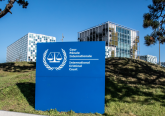Neoliberal institutional and economic reforms have attracted substantial scholarly attention in recent decades, but the role of law in the neoliberal story has been relatively neglected. ‘Understanding neoliberal legality’ was the subject of a day-long conference I organised at Oxford in June, which was generously sponsored by the Department of Politics and International Relations. The event drew together 40 established and emerging academics from across the UK and as far away as Canada, Finland, and Australia. These scholars have been independently researching various aspects of the role of law in the construction and contestation of neoliberalism. Many are members of major research networks in political and legal studies, such as the Institute for Global Law and Policy based at Harvard Law School, and edit prominent sites of scholarly discussion such as the debuting London Review of International Law.
The questions and dilemmas animating the meeting included the following:
• What form does law take under neoliberalism and to what extent is this new and different?
• What role do the content and form of law play in shaping the economic, political, and ideological pillars of the neoliberal project?
• What are the implications of these shifts for the ways in which neoliberalism is negotiated and resisted?
Set in the modern seminar rooms of Oxford’s Manor Road Building, the meeting was divided into a series of panels which traced a progression of elements in the story of neoliberal law. The day opened with a panel that outlined the necessity of studying neoliberal legality and established preliminary parameters for doing so. Paavo Kotiaho (University of Helsinki) spoke on this panel of the importance of examining law in its own right rather than dismissing law as merely the technical vehicle through which neoliberal reforms are enacted. In the pursuit of such an examination, he challenged participants to develop a research agenda ‘with teeth’ by not only observing particular events but also linking contemporary and historical trends in order to identify overarching structural patterns and logics.
Following this opening panel were several panels examining the role of law in the neoliberal project. The first such panel explored the role of law in the construction of neoliberalism globally through a discussion of changes not only to the content but also to the focus and aim of law in the areas of international property, competition, and investment law. Drawing from analysis of international investment law, Enrique Prieto Rios (Birkbeck, University of London) discussed the neoliberal emphasis on contractual relations and the broadening of the conception of property in the neoliberal period, including the increasing treatment of property as a right not to be restricted. He further examined the extension of the pursuit of market rationality and profitability into the areas of judicial and political engagement and questioned how this might affect democratic participation and accountability.
A second panel on the role of law in the neoliberal project explored shifts in the role of law at the domestic level in the area of social policy, including policy governing social assistance, security, and crime. On this panel, Dr Kenneth Veitch (University of Sussex) explored the role of law in re-shaping perceptions of social assistance, with a focus on workfare policy. He discussed the general shift in the function of law in the neoliberal period from the ‘social law’ of the post-war era, through which law was seen as an instrument for redressing social and economic inequalities, to an emphasis on rule of law in the current period, through which the aspiration of law increasingly is limited to ensuring that regulations are merely general, formal, and clear. He challenged participants to consider how this shift has affected conceptions of justice and injustice. Following this, Professor Joe Sim (Liverpool John Moores University) discussed the emergence of a new common sense about crime and prisoners in the neoliberal period, along with an increased criminalisation of new populations. He encouraged discussion not only of policy changes implemented under neoliberalism but also of intellectual changes to the ways in which social change is imagined.
Following this line of enquiry, the final panel exploring the role of law in the neoliberal project focused on changes to the possibilities for social change in the neoliberal period, with reference to examples from the UK, Greece, and the United Nations. Robert Knox (London School of Economics and Political Science) spoke about the central but less visible role played by legal mechanisms in the casualisation and flexibilisation of labour that are commonly associated with the neoliberal period. In particular, he examined how legal mechanisms have affected the ability of the labour movement to combat these changes, including how legal mechanisms increasingly mediate demands for social change, reconfiguring these demands to be more in line with neoliberal principles, as well as the impact of this reconfiguration on the collective political identity of the working class.

Subsequent panels took the challenges for democratic debate and social change in the neoliberal period that were presented in the earlier discussions and brought them to bear on concrete examples of resistance to neoliberal policy. One panel explored the varied success of attempts to use law against neoliberalism through progressive legislation, regulation, and judicial action, drawing from the examples of Burma, Colombia, and Latin American regionalism. On this panel, Tor Krever (London School of Economics and Political Science) traced the progression of the role of law in international development orthodoxy from a tool wielded by the state for social projects prior to the 1980s to a mechanism for facilitating private transactions in the early neoliberal period through to the current view that rule of law is instrumental for economic growth. He indicated that the recent emergence of legal institutions as a dominant development priority is considered to mark a departure from neoliberal development policy. However, his talk examined how the normative assumptions underlying this new focus seem to retain the neoliberal emphasis on the promotion and facilitation of private business activity as the animating goal of law.
The final panel explored the tactics of social movements operating outside the state apparatus in their resistance to neoliberalism with reference to examples from Egypt, Colombia, the UK, and Bolivia. My own paper on this panel (Honor Brabazon, University of Oxford) drew together themes from the previous panels to pose the question of what can be done from the perspective of political mobilisation. I outlined specific processes through which the logic and language of law increasingly have come to structure various elements of the political sphere, and I explored the restrictions that this ‘juridification’ has created for the ways in which political dissent is articulated and played out. I gauged what might be gained and risked from potential shifts in the tactics of social movements in response to this juridified political sphere, and I offered a preliminary theorisation of the unexpectedly subversive law-based tactics that some movements have developed to navigate this shifting political terrain as they resist neoliberal processes.
The programme culminated in a plenary discussion led by Professor Sundhya Pahuja (University of Melbourne), Dr Lara Montesinos Coleman (University of Sussex), and Dr Vanja Hamzić (City University London). Their plenary interventions beautifully wove together the presentations of the day, underscoring the major themes, contradictions, and chasms in the intellectual landscape that the previous discussions had highlighted, and astutely suggesting how these might guide our future enquiry.
The discussion was provocative and generative, and continued into the evening over a lovely dinner on the picturesque grounds of Mansfield College. Those in attendance remarked on how fruitful it was to meet others who are interested in similar overarching questions but who had been researching different angles of neoliberal legality independently, as there previously had not been a forum for such lateral, cross-sectional, and interdisciplinary discussion on this subject.
The puzzles and tensions raised at this conference now constitute the basis of the research this network hopes to conduct through future meetings and collaborations. Audio recordings from the event can be found in the DPIR podcast library, and plans are in motion to develop selected contributions into an edited volume.
Thanks should be extended to all presenters, as well as to Professor Matthew Craven (SOAS, University of London) and Dr Grietje Baars (City University London) for chairing panels, and to the Department of Politics and International Relations at Oxford for sponsoring the event.









No Comment